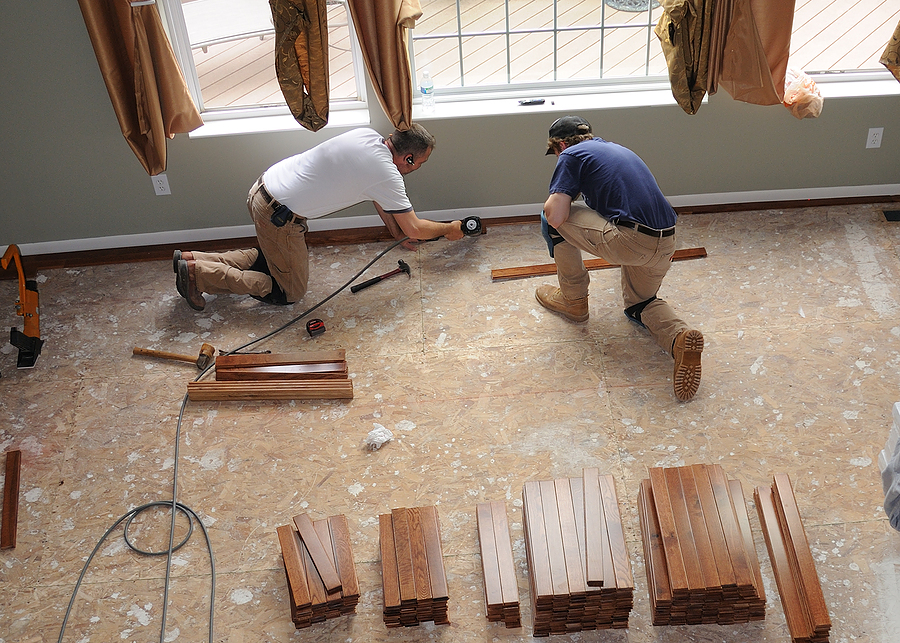Souqh Blog
Subscribe to our blogs
for latest trends

The home buying process in Canada can be quite overwhelming for first-time buyers. In the stress of it, many inevitably make mistakes. Costly mistakes. Naturally, this is a popular topic of discussion in real estate circles and a lot of advice is available on how to avoid these mistakes. But perhaps less highlighted are the mistakes first-time homeowners make in the euphoria of closing what for many is the biggest purchase of their lifetime. The mistakes you make in all the excitement can come back to bite you and can even affect your home’s resale value. Now that you have been handed the keys to your new home, you should be enthusiastic to start putting your personal stamp on the property. Tread with caution; the mistakes we will highlight below can quickly deflate your enthusiasm and punch a large hole in your pocket:
 As a new homeowner, you will have a lot of ideas on what the home must look like. Oftentimes this entails making both cosmetic and structural alterations to the home.
But it’s important not to rush into any major renovation or remodel and give yourself time to settle in and get a full appreciation of the home’s features. This way you will know what you need to prioritize to improve both the efficiency and curb appeal of your new home. You will likely find that a new roof or more energy-efficient windows are a more urgent project than a new bathroom.
So for the first year at least, it may be wiser to focus your budget on smaller repairs. Get a home repair and maintenance professional to come in and access the condition of the home and identify repairs and maintenance areas the previous homeowner may have neglected.
After you have lived in the new home for a while, you will be better acquainted with its features and problem areas and, thus, more prepared to tackle a major renovation or remodel with confidence.
As a new homeowner, you will have a lot of ideas on what the home must look like. Oftentimes this entails making both cosmetic and structural alterations to the home.
But it’s important not to rush into any major renovation or remodel and give yourself time to settle in and get a full appreciation of the home’s features. This way you will know what you need to prioritize to improve both the efficiency and curb appeal of your new home. You will likely find that a new roof or more energy-efficient windows are a more urgent project than a new bathroom.
So for the first year at least, it may be wiser to focus your budget on smaller repairs. Get a home repair and maintenance professional to come in and access the condition of the home and identify repairs and maintenance areas the previous homeowner may have neglected.
After you have lived in the new home for a while, you will be better acquainted with its features and problem areas and, thus, more prepared to tackle a major renovation or remodel with confidence.
 Renovations and remodels are costly and can often run beyond their budget. This is especially true for new homeowners who lack prior renovation experience. The issue here isn’t necessarily that you will run out of money before the project is completed. Rather, the danger is you may spend more than you can recover if you decide or are forced to sell the home.
Spending more than you can recover represents a financial loss. So as a new homeowner, it is important to take a step back and work out how much you will have to spend to bring the house to your desired level of comfort, luxury features, overall efficiency, and curb appeal. Then decide if it is an investment you will be able to recoup.
After all, a house is ultimately worth what someone is willing to pay for it, not how much you have invested in it. Factors like location and the current state of the market all intervene and mean some renovations don’t always guarantee a return.
Renovations and remodels are costly and can often run beyond their budget. This is especially true for new homeowners who lack prior renovation experience. The issue here isn’t necessarily that you will run out of money before the project is completed. Rather, the danger is you may spend more than you can recover if you decide or are forced to sell the home.
Spending more than you can recover represents a financial loss. So as a new homeowner, it is important to take a step back and work out how much you will have to spend to bring the house to your desired level of comfort, luxury features, overall efficiency, and curb appeal. Then decide if it is an investment you will be able to recoup.
After all, a house is ultimately worth what someone is willing to pay for it, not how much you have invested in it. Factors like location and the current state of the market all intervene and mean some renovations don’t always guarantee a return.
 Of course, failing to obtain building permits may be entirely your fault. In most cases, it is because you take the DIY route and neglect to check with the local city authority and find out if or not you will need a building permit for your project. In other cases, you simply bite more than you can chew.
That’s not to say there aren’t home renovation projects you can tackle on your own. Many may fall right within your wheelhouse. That said, a professional contractor will do the work faster, more efficiently, and as a result, possibly at a lower cost.
More importantly, you can utilize a professional contractor’s experience and consult with them on issues including building permits, scheduling of the renovation, and where to get cheaper raw materials.
When you work with the contractors in the Souqh database, you can be sure that they will only start work after every necessary permit has been pulled. They do this because their reputations rest on that efficiency and due diligence. Furthermore, you will know that the work will be done right the first time.
Of course, failing to obtain building permits may be entirely your fault. In most cases, it is because you take the DIY route and neglect to check with the local city authority and find out if or not you will need a building permit for your project. In other cases, you simply bite more than you can chew.
That’s not to say there aren’t home renovation projects you can tackle on your own. Many may fall right within your wheelhouse. That said, a professional contractor will do the work faster, more efficiently, and as a result, possibly at a lower cost.
More importantly, you can utilize a professional contractor’s experience and consult with them on issues including building permits, scheduling of the renovation, and where to get cheaper raw materials.
When you work with the contractors in the Souqh database, you can be sure that they will only start work after every necessary permit has been pulled. They do this because their reputations rest on that efficiency and due diligence. Furthermore, you will know that the work will be done right the first time.
 The costliest consequence of biting more than you can chew, under-budgeting, and failing to obtain building permits is that the project may stall. This setback may prove too much to overcome.
When a renovation stalls, not only do you risk the money you had already sunk into the project, but the unfinished home may also become less livable and end up consuming too much energy. The unfinished parts of the house may also become safety hazards.
The costliest consequence of biting more than you can chew, under-budgeting, and failing to obtain building permits is that the project may stall. This setback may prove too much to overcome.
When a renovation stalls, not only do you risk the money you had already sunk into the project, but the unfinished home may also become less livable and end up consuming too much energy. The unfinished parts of the house may also become safety hazards.